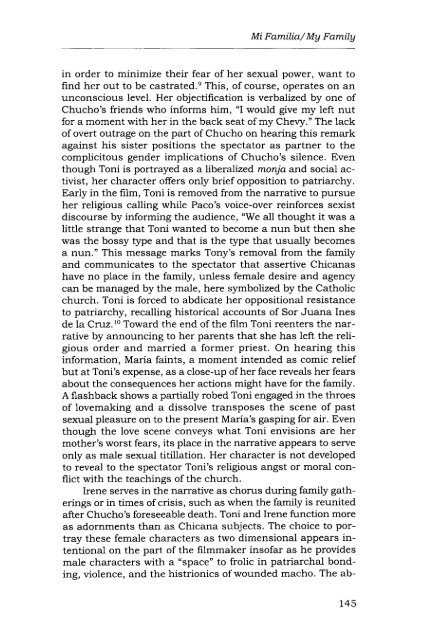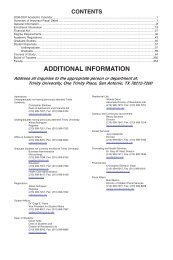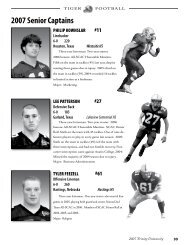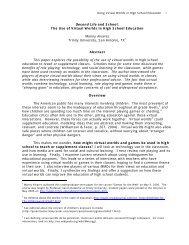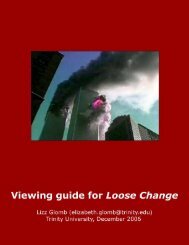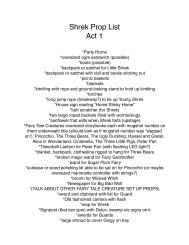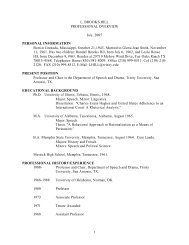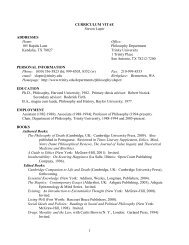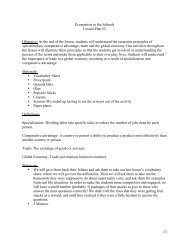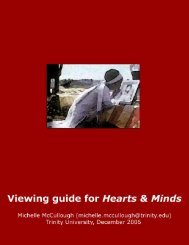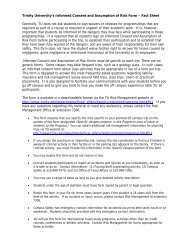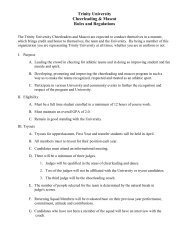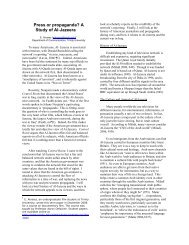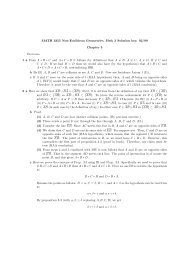Reviews - Trinity University
Reviews - Trinity University
Reviews - Trinity University
You also want an ePaper? Increase the reach of your titles
YUMPU automatically turns print PDFs into web optimized ePapers that Google loves.
Mi Familia/My Family<br />
in order to minimize their fear of her sexual power, want to<br />
find her out to be ca~trated.~ This, of course, operates on an<br />
unconscious level. Her objectification is verbalized by one of<br />
Chucho’s friends who informs him, “I would give my left nut<br />
for a moment with her in the back seat of my Chevy.” The lack<br />
of overt outrage on the part of Chucho on hearing this remark<br />
against his sister positions the spectator as partner to the<br />
complicitous gender implications of Chucho’s silence. Even<br />
though Toni is portrayed as a liberalized monja and social activist,<br />
her character offers only brief opposition to patriarchy.<br />
Early in the film, Toni is removed from the narrative to pursue<br />
her religious calling while Paco’s voice-over reinforces sexist<br />
discourse by informing the audience, “We all thought it was a<br />
little strange that Toni wanted to become a nun but then she<br />
was the bossy type and that is the type that usually becomes<br />
a nun.” This message marks Tony’s removal from the family<br />
and communicates to the spectator that assertive Chicanas<br />
have no place in the family, unless female desire and agency<br />
can be managed by the male, here symbolized by the Catholic<br />
church. Toni is forced to abdicate her oppositional resistance<br />
to patriarchy, recalling historical accounts of Sor Juana Ines<br />
de la Cruz.’O Toward the end of the film Toni reenters the narrative<br />
by announcing to her parents that she has left the religious<br />
order and married a former priest. On hearing this<br />
information, Maria faints, a moment intended as comic relief<br />
but at Toni’s expense, as a close-up of her face reveals her fears<br />
about the consequences her actions might have for the family.<br />
A flashback shows a partially robed Toni engaged in the throes<br />
of lovemaking and a dissolve transposes the scene of past<br />
sexual pleasure on to the present Maria’s gasping for air. Even<br />
though the love scene conveys what Toni envisions are her<br />
mother’s worst fears, its place in the narrative appears to serve<br />
only as male sexual titillation. Her character is not developed<br />
to reveal to the spectator Toni’s religious angst or moral conflict<br />
with the teachings of the church.<br />
Irene serves in the narrative as chorus during family gatherings<br />
or in times of crisis, such as when the family is reunited<br />
after Chucho’s foreseeable death. Toni and Irene function more<br />
as adornments than as Chicana subjects. The choice to portray<br />
these female characters as two dimensional appears intentional<br />
on the part of the filmmaker insofar as he provides<br />
male characters with a “space” to frolic in patriarchal bonding,<br />
violence, and the histrionics of wounded macho. The ab-<br />
145


